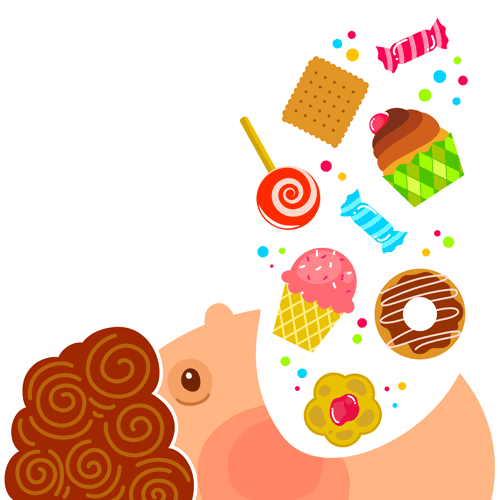YOU BINGE?

Binge eating disorder often starts in the late teens or young-adult years. If you think you have a problem with binge eating, ask your parent(s) or a trusted adult for help. Counseling, medicine and extended treatment will help. The earlier you get treatment, the better your chances are to recover. Binge eating patterns are hard to change once they are established.
10 strategies for overcoming binge eating
- Manage stress. One of the most important aspects of controlling binge eating is to find alternate ways to handle stress and other overwhelming feelings without using food. These may include exercising, meditating, using sensory relaxation strategies, and practicing simple breathing exercises.
- Eat 3 meals a day plus healthy snacks. Eating breakfast jump starts your metabolism in the morning. Follow breakfast with a balanced lunch and dinner, and healthy snacks in between. Stick to scheduled mealtimes, as skipping meals often leads to binge eating later in the day.
- Avoid temptation. You’re much more likely to overeat if you have junk food, desserts, and unhealthy snacks in the house. Remove the temptation by clearing your fridge and cupboards of your favorite binge foods.
- Stop dieting. The deprivation and hunger of strict dieting can trigger food cravings and the urge to overeat. Instead of dieting, focus on eating in moderation. Find nutritious foods that you enjoy and eat only until you feel content, not uncomfortably stuffed. Avoid banning certain foods as this can make you crave them even more.
- Exercise. Not only will exercise help you lose weight in a healthy way, but it also lifts depression, improves overall health, and reduces stress. The natural mood-boosting effects of exercise can help put a stop to emotional eating.
- Fight boredom. Instead of snacking when you're bored, distract yourself. Take a walk, call a friend, read, or take up a hobby such as painting or gardening.
- Get enough sleep. If you're tired, you may want to keep eating in order to boost your energy. Take a nap or go to bed earlier instead.
- Listen to your body. Learn to distinguish between physical and emotional hunger. If you ate recently and don't have a rumbling stomach, you're probably not really hungry. Give the craving time to pass.
- Keep a food diary. Write down what you eat, when, how much, and how you're feeling when you eat. You may see patterns emerge that reveal the connection between your moods and binge eating.
- Get support. You're more likely to succumb to binge eating triggers if you lack a solid support network. Talking helps, even if it’s not with a professional. Lean on family and friends, join a support group, and if possible consult a therapist.
Source: helpguide.org






 Leave a comment
Leave a comment